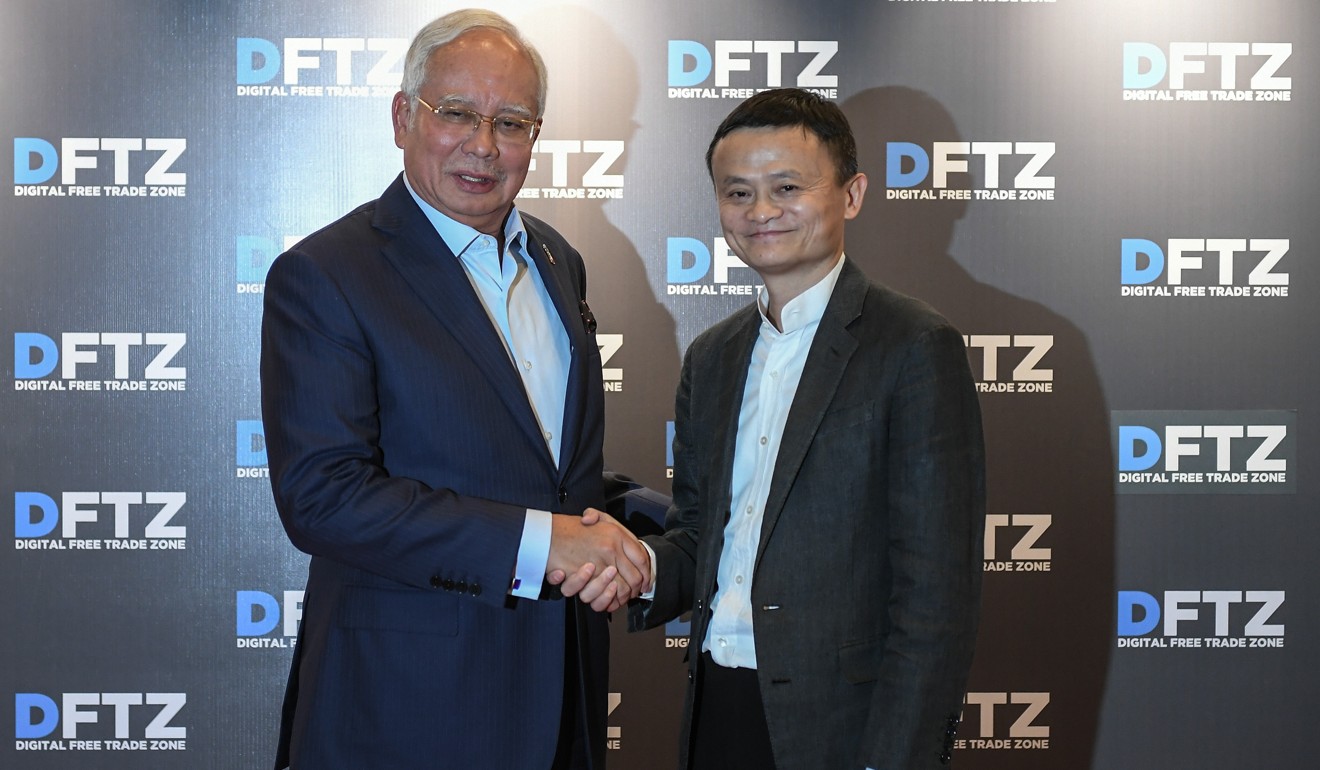
Alibaba helps Malaysia implement smart city programme
Kuala Lumpur, the capital of Malaysia, will be the first city in the country to implement Alibaba Cloud’s City Brain initiative
Malaysia will be the first country outside China to adapt the smart city system developed by the cloud computing arm of Alibaba Group Holding, the e-commerce giant said on Monday.
Its subsidiary, Alibaba Cloud, has launched the smart city initiative called Malaysia City Brain, which will harness artificial intelligence, big data and cloud technologies to support the country’s digital transformation and help its cities run more efficiently.
“Through this programme, we aim to empower all Malaysian stakeholders in both the public and private sectors with the tools to enhance efficiency, advance innovation and succeed in the digital age,” said Alibaba Cloud president Simon Hu Xiaoming.
“For Alibaba Cloud, this is the true meaning of inclusive technology.”
The company has teamed up with the Malaysia Digital Economy Corporation and Dewan Bandaraya Kuala Lumpur, the city council of the country’s capital, on this smart city initiative.
The project represents a growing worldwide trend in which governments increasingly work with technology companies to deploy advanced information and communications technologies across various functional public-sector areas, including transport, energy, governance, security and safety.
Key drivers behind the roll-out of smart city projects around the world are increased population growth in urban centres, demand for energy efficiency, intercity competition for investments, municipal cost reductions and efforts to improve citizens’ quality of life, according to research firm and consultancy IHS Markit.
Kuala Lumpur will be the first city in Malaysia to roll out Alibaba Cloud’s City Brain initiative, which will initially be used in traffic management.
With its massive cloud computing and data processing capabilities, the City Brain can optimise the flow of vehicles and traffic signals by calculating the time to reach intersections. It will also be able to generate structured summaries of data, such as traffic volume and speed in particular lanes, to detect accidents or any incidents that obstruct traffic.
The Malaysian City Brain can also be integrated with systems that manage emergency dispatches and ambulance calls, identifying the quickest route and adjusting traffic flow for emergency vehicles to arrive within the shortest time at their destination, according to Alibaba Cloud.
Large enterprises, start-ups, universities and other academic institutions will have the opportunity to access artificial intelligence tools used by City Brain to drive innovation in other areas as its functionality expands.
The initiative would likely be viewed as a positive development for Malaysian Prime Minister Razak Najib’s upcoming general election campaign if the City Brain helps use taxpayers’ money more efficiently – a sore point for Malaysian voters who have complained about rising costs of living.
Malaysia is also part of China’s Belt and Road Initiative, which was launched by Beijing to promote economic cooperation among countries across Asia, Europe and Africa. The Belt and Road Initiative is expected to bring benefits such as increased trade, access to new markets as well as more foreign direct investment to the country.
Alibaba Cloud’s City Brain was first implemented in September 2016 at the Xiaoshan district of Hangzhou, the city where Alibaba is headquartered. New York-listed Alibaba owns the South China Morning Post.
“Cloud computing, data technology and AI has become fundamental tools for all companies and organisations to operate effectively,” said Hu, who also serves as a senior vice-president at Alibaba.
Alibaba had earlier partnered with Malaysia on the electronic world trade platform (eWTP), the brainchild of Alibaba founder Jack Ma Yun.
With the eWTP, small and medium enterprises in both the mainland and Malaysia will be able to conduct cross-border trade easily. Ma has also been appointed as Malaysia’s digital economy adviser.
Alibaba is not the only Chinese technology company looking to use its artificial and cloud computing technology for smart city initiatives.


